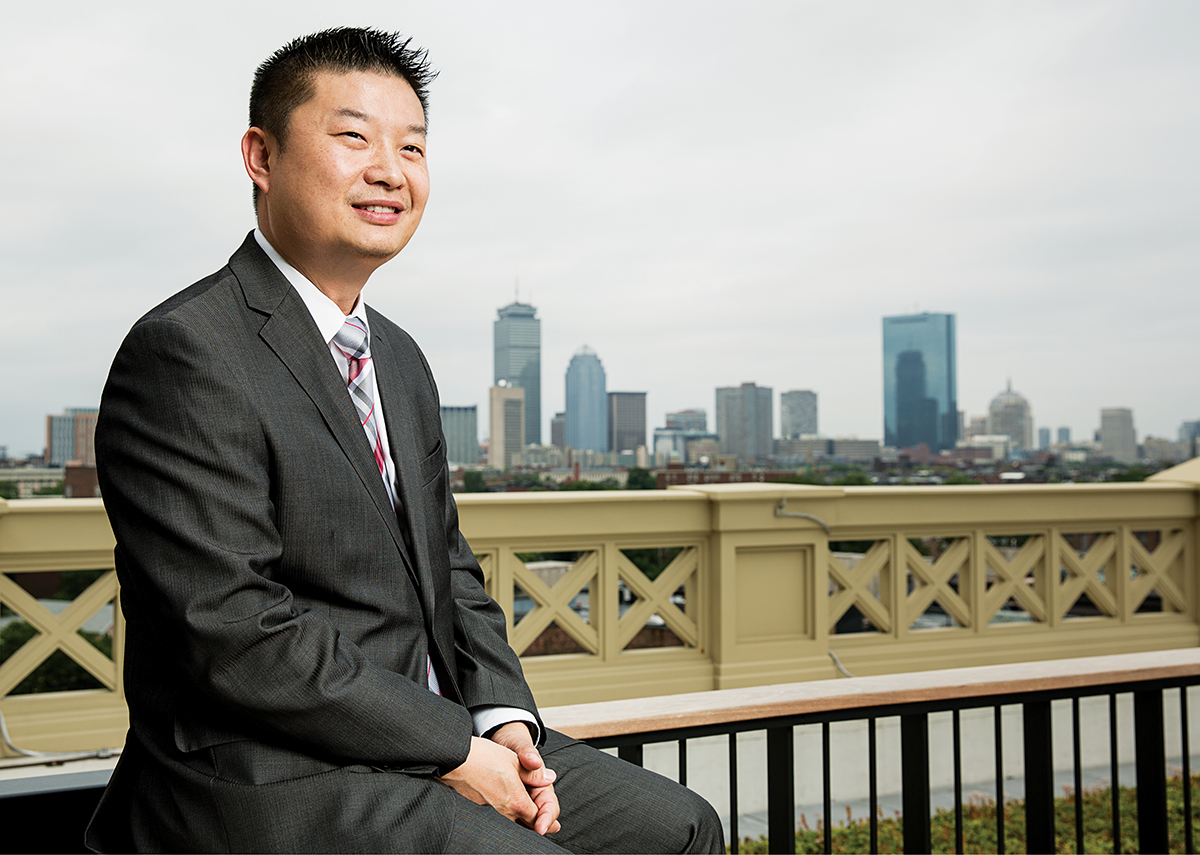Power Lunch: Tommy Chang

Photograph by Ken Richardson
Like an eager student on the first day of a tough class, Boston’s new schools superintendent arrived early. Before taking charge on July 1, Tommy Chang spent three months at the district offices, getting to know the job and the town. It was a shrewd move for the administrator, 40, who previously oversaw 95,000 students as a top deputy in the Los Angeles Unified School District. He now faces the challenge of making Boston’s underperforming schools work for everyone, including minority students and children with limited English proficiency. Chang met Erick Trickey on the rooftop patio of the Bruce C. Bolling Municipal Building, in Dudley Square, to discuss his plans for Boston Public Schools’ future.
What’s struck you about Boston so far?
Everybody has a huge opinion about public education. At a coffee shop or a restaurant, somebody will come by and say, “Hey, are you the new superintendent? I’d like to talk to you about something.” You have tons of private and public investment in education.
Why did you have your staff read articles on business and design?
Atul Gawande’s “Big Med” article talks about how the Cheesecake Factory spreads innovation: They have a menu of about 350 items, and 50 or 60 of them switch over every six months. You would think they write explicit recipes, but that’s not how they do it. They show a picture of the final product and list the ingredients. They want the line cooks to put in individuality, creativity, and mental acumen. Likewise, we can’t hope to guarantee high-quality education to all kids in Boston by telling people exactly what to do, when to do it, and how to do it.
You were a biology teacher at Compton High School. What did you learn there about how to close the minority achievement gap?
I partnered up with kids. I was a softball coach, and our team came together to build a new field and fundraise for uniforms. I was the first teacher in the Compton school district’s history to have students pass an AP science exam. Our students fundraised to do lab work in universities.
You were born in Taiwan and learned English in elementary school. What was that like?
On my first day of school in America, in first grade, I was in a phys ed class, and the PE teacher said, “I need you to take off your jacket.” I didn’t understand what he was saying. So he grabbed me by my arm, walked me across the playground, threw me in front of my first-grade teacher, and said, “I don’t want this child back in PE class until he understands how to listen.” She explained, “This young boy doesn’t speak any English. He just came to America.” What I experienced that day should never happen to any student in Boston.
Federal investigators have looked into whether BPS is failing students with limited English proficiency. How will you tackle that problem?
We need to have a deep respect for students’ identity and language. We also need to ensure that students receive explicit instruction on academic English.
You’ve been the principal of a charter school. What do you think the proper relationship should be between the school district and charters?
An ongoing conversation and collaboration. Teachers, parents, and students don’t care about these polarizing arguments. They care about the highest-quality education. Charter schools are set up to allow for more local empowerment. I think we could do that in traditional public schools, too.
There’s been discussion about increasing the cap on the number of charter schools statewide. What’s your opinion?
If there is a way to expand high-quality choices for families, I’m not going to advocate against it. At the same time, I am going to advocate for as many resources as possible for the Boston Public Schools.

